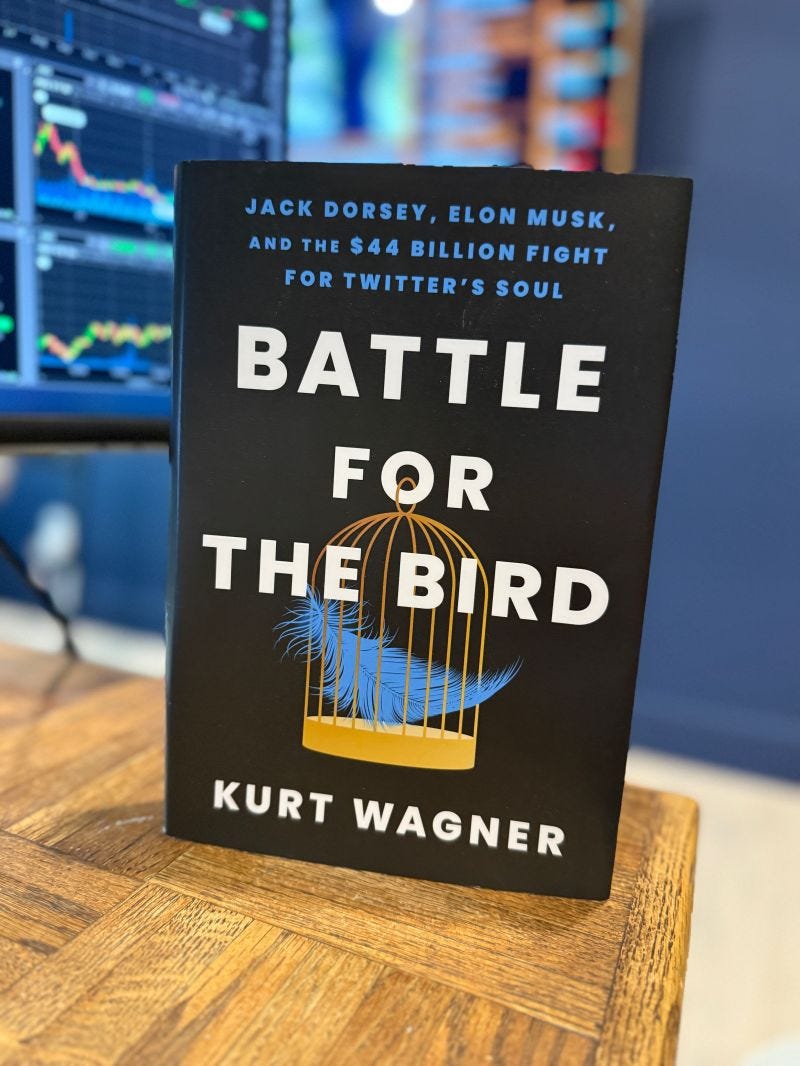What happens when a $44B company forgets what business it’s really in?
By Bryan Kaus
Twitter didn’t collapse because of code or cost - it collapsed because no one could align narrative, leadership, and structure. This is the story every executive should study.
I just finished Kurt Wagner's Battle for the Bird - one of the most objective accounts of how Twitter evolved from scrappy startup to global infrastructure to cautionary tale. What struck me wasn't the tech story. It was the power story. This wasn't about improving a platform. It was about controlling narrative itself.
✏️ What Twitter's Rise and Fall Taught Me About Strategy and Leadership For context:
I'm not naturally drawn to short-format platforms, but I've seen how technologies that seem "optional" can quickly become business-critical. The question isn't whether to engage - it's whether you truly understand what you're building.
Wagner's account reveals three critical patterns:
🔴Jack Dorsey's idealism clashed with operational reality — Vision without structure creates vulnerability
🔴Strategic ambiguity invited activist pressure — When you can't articulate your value, others will define it for you
🔴Musk's takeover prioritized narrative control over product — Leadership became personality-first, and chaos followed
🔍 The Universal Business Lessons
➡️ Being beloved doesn't make a business defensible
➡️ Influence without sustainable economics invites disruption
➡️ When leadership avoids hard decisions, someone else eventually makes them
🌐 Why This Applies Beyond Tech Whether you're leading an energy company, manufacturer, nonprofit, or scaling venture - these questions are universal:
- Are we clear on what we're building and why?
- Is our operating model designed for the complexity we actually face?
- Are we building organizations that flex under pressure or fracture?
Even mission-driven enterprises fail when leadership, purpose, and execution fall out of alignment. Culture, governance, and stakeholder trust aren't "soft topics"—they're structural advantages that must evolve with strategy.
🧭 Intangibles ARE Value
This reinforced something I see repeatedly: Trust, reputation, and narrative are assets. But without structure, they fade. Without leadership, they drift. Without courage, they crumble.
In sectors like energy and industrial transformation where stakeholder dynamics are complex and public scrutiny is constant and these intangibles directly impact outcomes. When narrative shifts, market dynamics follow.
Twitter started as an experiment. Became infrastructure. Then became a warning.
For leaders navigating digital transformation, stakeholder complexity, cycle changes: What intangible assets are you building? And what structure protects them when pressure mounts?
Worth the read for anyone building durable value in uncertain times.
If you are interest in the book, click here: https://amzn.to/4odHa7Y



